
Journal of Hematopathology
Scope & Guideline
Advancing knowledge in hematopathology.
Introduction
Aims and Scopes
- Hematological malignancies research:
The journal extensively covers various hematological malignancies, including but not limited to leukemias, lymphomas, and myelomas, providing insights into their pathogenesis, diagnosis, and treatment. - Molecular and genetic characterizations:
A significant focus is placed on the molecular and genetic underpinnings of hematological diseases, utilizing advanced techniques such as next-generation sequencing and RNA sequencing to identify pathogenic variants and gene rearrangements. - Diagnostic methodologies:
The journal emphasizes the development and validation of novel diagnostic techniques, including immunohistochemistry, flow cytometry, and automated staining protocols, to enhance the accuracy of hematopathological diagnoses. - Case studies and clinical challenges:
Through case reports and series, the journal explores unique and challenging cases in hematopathology, shedding light on diagnostic dilemmas and the clinical implications of various hematological disorders. - Translational research:
There is a strong emphasis on translational research that bridges laboratory findings with clinical applications, aiming to improve patient outcomes through better diagnostic and therapeutic strategies.
Trending and Emerging
- Next-generation sequencing in diagnostics:
The increased use of next-generation sequencing (NGS) for the identification of pathogenic variants and complex genetic rearrangements in hematological malignancies is a prominent trend, enhancing diagnostic accuracy and enabling personalized treatment approaches. - Impact of CAR-T therapy:
Research focusing on the effects and outcomes of CAR-T cell therapy in various hematological malignancies, including the challenges related to therapy-related neoplasms and lineage transformation, has become increasingly significant. - Immunological aspects of hematological diseases:
There is a growing trend towards exploring the immunological factors influencing hematological diseases, including studies on immune evasion mechanisms and the role of immune checkpoints in lymphomas and leukemias. - Artificial intelligence and computational techniques:
The integration of artificial intelligence and computational methods in diagnosing and characterizing hematological diseases is emerging, indicating a shift towards more tech-driven diagnostic strategies. - Interdisciplinary approaches:
The incorporation of interdisciplinary perspectives, such as the intersection of hematology with infectious diseases and dermatology, is gaining traction, highlighting the complex interplay of various medical fields in understanding hematopathological conditions.
Declining or Waning
- Traditional histopathological techniques:
There is a noticeable decrease in publications focusing solely on traditional histopathological techniques without integration of molecular or genetic analyses, as the field moves towards more comprehensive and technologically advanced approaches. - Basic epidemiological studies:
Research centered on basic epidemiological data without a molecular or diagnostic focus has seen a decline, likely due to the growing interest in understanding the molecular mechanisms behind hematological diseases. - Non-specific hematological disorders:
Themes exploring non-specific or less characterized hematological conditions have waned, as the journal increasingly prioritizes studies that provide clear molecular insights or significant clinical relevance.
Similar Journals
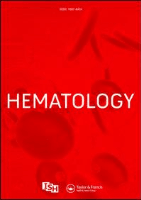
Hematology
Unlocking Potential: Pioneering Research in Blood DisordersHematology is a distinguished open-access journal published by Taylor & Francis Ltd, dedicated to advancing research and knowledge in the field of hematology. Established in 1996, the journal has continually evolved to meet the needs of a growing community of researchers and practitioners, providing a vital platform for disseminating innovative findings and clinical insights. With its impact factor reflecting a robust commitment to quality scholarship, Hematology has achieved a respectable position in its category as evidenced by its Q3 ranking in the Hematology category and ranks #85 out of 137 in the Scopus index, which positions it in the 38th percentile among its peers. The journal’s open-access policy, initiated in 2019, further enhances its reach and accessibility, allowing a broad audience of professionals, researchers, and students to engage with high-quality research without barriers. By covering a wide range of topics related to blood disorders, treatment methodologies, and emerging therapies, Hematology stands as an essential resource for those dedicated to innovation in this critical area of healthcare.
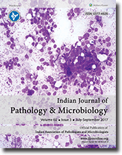
Indian Journal of Pathology and Microbiology
Advancing Knowledge in Pathology and MicrobiologyIndian Journal of Pathology and Microbiology, published by Wolters Kluwer Medknow Publications, is a distinguished open-access journal that has been fostering knowledge dissemination in the fields of pathology and microbiology since 2008. With an ISSN of 0377-4929 and E-ISSN 0974-5130, this journal serves as a critical resource for researchers and practitioners committed to advancing their understanding of medical sciences in India and beyond. Spanning decades of valuable research contributions since its establishment in 1972, it provides a platform for peer-reviewed articles that explore current trends and innovations in medicinal pathology and microbiological studies. Although it holds a Q4 ranking in categories such as medicine and microbiology, it maintains a notable Q3 classification in pathology and forensic medicine, highlighting its relevance to contemporary scientific discussions. Accessible freely to a global audience, the journal plays a pivotal role in enhancing scholarly communication and collaboration, making it an indispensable tool for students, professionals, and researchers alike aiming to contribute to this evolving discipline.
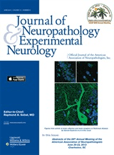
JOURNAL OF NEUROPATHOLOGY AND EXPERIMENTAL NEUROLOGY
Exploring the Complexities of the Nervous SystemJOURNAL OF NEUROPATHOLOGY AND EXPERIMENTAL NEUROLOGY, published by Oxford University Press Inc, stands as a pivotal resource for advancing research and knowledge in the domains of neuropathology and experimental neurology. Established in 1942, this esteemed journal has expanded its influence, as evidenced by its Q1 rankings in both Neurology (clinical) and Pathology and Forensic Medicine, along with its strong placement in Cellular and Molecular Neuroscience. With an emphasis on innovative research and clinical practices, it caters to a diverse audience, including researchers and clinicians dedicated to understanding neurological disorders through a multidisciplinary lens. While not open access, this journal provides access to cutting-edge studies that are pivotal in shaping the future of medical science and pathology. Researchers benefit from its rigorous peer-review process, ensuring the publication of high-caliber work that meets the evolving demands of the field.
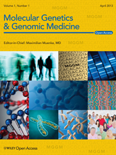
Molecular Genetics & Genomic Medicine
Empowering the future of genomic medicine.Molecular Genetics & Genomic Medicine, published by WILEY, is an esteemed and open-access journal that has been a prominent source of knowledge in the fields of genetics and molecular biology since its establishment in 2013. With an ISSN of 2324-9269, it aims to provide a platform for the dissemination of novel findings and innovative research that pushes the boundaries of genomics and its clinical applications. The journal holds a Q3 categorization in Genetics, Clinical Genetics, and Molecular Biology, reflecting its growing influence in these disciplines, as evidenced by its Scopus rankings. Researchers, professionals, and students alike will find valuable insights and advancements in genomic medicine, making this journal an essential resource for those dedicated to the understanding and application of genetic and molecular research in healthcare. Located at 111 River St, Hoboken, NJ, Molecular Genetics & Genomic Medicine continues to foster a global dialogue within the scientific community, ensuring accessible knowledge for all.
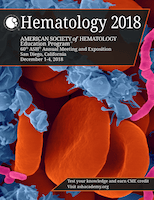
Hematology-American Society of Hematology Education Program
Cultivating Expertise in Blood HealthHematology-American Society of Hematology Education Program is a premier peer-reviewed journal dedicated to advancing the field of hematology through comprehensive educational content. Published by the American Society of Hematology, this journal plays a crucial role in disseminating knowledge to researchers, clinicians, and students in hematology and related disciplines. With an impressive Q1 status in the field, it ranks among the top journals at the forefront of hematological research, as evidenced by its 60th percentile ranking in Scopus' Medicine - Hematology category. Although it does not offer open access, the journal provides invaluable insights and educational resources from leading experts, focusing on the latest advancements, treatment protocols, and evolving understanding of blood disorders. Covering a wide range of topics, from basic research to clinical applications, this journal is essential for anyone seeking to deepen their expertise and stay informed on the latest developments in hematology. For further engagement, readers can access insightful articles published since 2001, ensuring a rich repository of knowledge for ongoing research and clinical excellence.
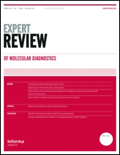
EXPERT REVIEW OF MOLECULAR DIAGNOSTICS
Advancing the Frontiers of Molecular DiagnosticsEXPERT REVIEW OF MOLECULAR DIAGNOSTICS, published by Taylor & Francis AS, serves as a pivotal platform for facilitating advanced research and discourse in the fields of Genetics, Molecular Biology, Molecular Medicine, and Pathology. With an impressive Impact Factor and a distinguished status as Q2 in multiple categories, along with a prestigious Q1 ranking in Pathology and Forensic Medicine (2023), this journal continues to attract contributions from leading experts and budding researchers alike. The journal aims to address critical developments in molecular diagnostics, providing insightful reviews that propel the understanding and application of diagnostic techniques in various medical contexts. Accessible to a diverse audience in the academic community, the journal emphasizes the importance of molecular diagnostics in both clinical and laboratory settings, promoting innovative methodologies and comprehensive evaluations of emerging technologies. With ongoing convergence of scientific discovery advancing rapidly from 2001 through 2024, EXPERT REVIEW OF MOLECULAR DIAGNOSTICS remains essential for those committed to furthering the fields of molecular diagnostics and healthcare advancements globally.
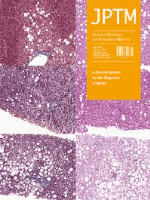
Journal of Pathology and Translational Medicine
Bridging Theory and Practice in Medical ScienceThe Journal of Pathology and Translational Medicine, published by the Korean Society of Pathologists, is a distinguished peer-reviewed Open Access journal that has been at the forefront of advancing the field of pathology and histology since its inception in 1985. With an established ISSN of 2383-7837 and an E-ISSN of 2383-7845, the journal serves as a vital platform for disseminating high-quality research, fostering collaboration among professionals and offering valuable insights into both clinical applications and theoretical advancements. Recognized for its influence in the field, it holds a commendable Q2 ranking in both Histology and Pathology & Forensic Medicine categories in 2023, and ranks #52/208 in Scopus for Medicine – Pathology and Forensic Medicine, demonstrating its impact and reach within the academic community. Located in South Korea at 1209 Gwanghwamun Officia, 92 Saemunan-ro, Jongno-gu, Seoul 03186, this journal not only caters to researchers and professionals but also supports students striving to deepen their understanding of pathology. Join the growing body of knowledge and stay updated with the latest findings in this essential field of study through the journal's open access format, promoting worldwide accessibility and engagement.
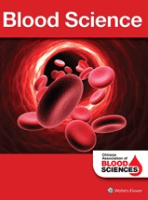
Blood Science
Advancing Hematology Through Innovative ResearchBlood Science is a distinguished peer-reviewed journal published by Lippincott Williams & Wilkins, focusing on the dynamic field of hematology. Since its inception, the journal has aimed to disseminate high-quality research and innovative findings that contribute to our understanding of blood-related health issues. With the ISSN 2543-6368, it offers a platform for academic discussions and breakthroughs in various subfields including hematopathology, blood disorders, and transfusion medicine. As of 2023, Blood Science is ranked in the third quartile (Q3) within the hematology category, indicating a burgeoning influence among its peers, with a Scopus rank of #101 out of 137 journals, placing it in the 26th percentile. Although it is not an open-access journal, it provides essential insights and valuable data for researchers, healthcare professionals, and students alike, enhancing the collective knowledge and practices in hematology. With a publication period spanning from 2019 to 2024, Blood Science remains committed to fostering the advancement of blood science research and enhancing patient care methodologies.

INTERNATIONAL JOURNAL OF HEMATOLOGY
Connecting Scholars in the Pursuit of Blood KnowledgeThe INTERNATIONAL JOURNAL OF HEMATOLOGY, published by SPRINGER JAPAN KK, serves as a critical platform for advancing research in the field of hematology. With a prestigious history spanning over three decades from 1991 to 2024, this journal is recognized for its impactful contributions, evidenced by its Q2 category ranking in Hematology for 2023, and its notable position at rank #71 out of 137 in the Scopus Medicine Hematology category. Researchers and professionals within the hematology community benefit from the journal's rigorous peer-reviewed articles that cover a wide range of topics, including clinical studies, basic research, and novel therapeutic strategies. Though currently non-open access, it provides essential insights and findings to an audience passionate about the latest advancements in blood disorders and treatments. Situated in Japan, the journal not only showcases high-quality research but also fosters a global exchange of knowledge in hematology, making it a significant resource for scholars, practitioners, and students alike.
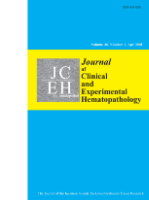
Journal of Clinical and Experimental Hematopathology
Catalyzing Global Collaboration in Hematopathology.The Journal of Clinical and Experimental Hematopathology, published by the Japanese Society of Lymphoreticular Tissue Research, is a vital resource dedicated to advancing the field of hematopathology. With an impressive Open Access model since 2019, this journal provides researchers, clinicians, and students from around the world with unfettered access to cutting-edge research and developments in hematology and pathophysiology. Based in Japan, it has established a prominent reputation in the academic community, boasting a Q3 quartile ranking in Hematology and Q1 rankings in both Medicine (Miscellaneous) and Pathophysiology as of 2023. With its innovative contributions and high visibility, the journal not only fosters scholarly discourse but also impacts clinical practices, making it an essential publication for anyone interested in the complexities of hematologic disorders. For submissions and further inquiries, the journal is located at Nagoya University Graduate School of Medicine, Japan.